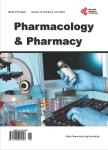Assessment of Knowledge, Attitude and Practices towards the Disposal of Unused and Expired Medications among Students of Private Medical Universities in Lusaka, Zambia
Assessment of Knowledge, Attitude and Practices towards the Disposal of Unused and Expired Medications among Students of Private Medical Universities in Lusaka, Zambia作者机构:Department of Pharmacy School of Health Sciences University of Zambia Lusaka Zambia Department of Physiological Sciences School of Medicine and Health Sciences Mulungushi University Livingstone Zambia Department of Clinical Pharmacy and Pharmacy Practice School of Pharmacy Eden University Lusaka Zambia Department of Pharmacy School of Medicine and Health Sciences Mulungushi University Kabwe Zambia
出 版 物:《Pharmacology & Pharmacy》 (药理与制药(英文))
年 卷 期:2022年第13卷第2期
页 面:49-68页
学科分类:0502[文学-外国语言文学] 050201[文学-英语语言文学] 05[文学]
主 题:Unused Medications Expired Medications Medicine Disposal Medicine Waste
摘 要:Background: The disposal of unused and expired medications has been a concern in many countries in that, the pharmaceutical waste enters the ecosystem and eventually causes a negative impact on human health and environment. Aim: To assess the knowledge, attitude and disposal practices of unused and expired medicines by students in the private medical universities in Lusaka of Zambia. Method: A cross-sectional survey was conducted over a period of 8 weeks among 391 respondents from three private universities in Lusaka. Respondents were polled using semi structured questions that focused on their knowledge, attitudes, and disposal practices for unused and expired drugs. In order to analyze data, the statistical package for social sciences (SPSS) version 20 was utilized. Results: The mean age of the participants was 23 years (SD: ±3). Out of the 391 participants, 320 (81.8%) knew about medicine waste and 391 (100.0%) responded that unsafe disposal of unused and expired medicine poses a threat to human health and can harm the environment. The drug-take-back system was unknown to a vast percentage of the respondent 371 (94.9%). The majority 274 (70.1%) of respondents had unused medicine stored at home, with antibiotics 215 (56.0%) and analgesia 111 (28.4%) being the most prevalent types of drugs kept in the households. The most commonly used disposal practice for unused 126 (32.2%) and expired medicines 274 (70.1%) was throwing them in household garbage. Only 27 (6.9%) and 30 (7.7%) reported returning unused and expired medicines to the nearest pharmacy respectively. The majority of respondents believed the risk stemmed from the presence of an undesired drug in the home, the potential for harm to children, a lack of proper information on safe disposal practices, and the necessity for a take-back program. Conclusions: The majority of the study participants used unsafe methods to dispose of unused and expired medicine. However, most of the participants acknowledged that un



